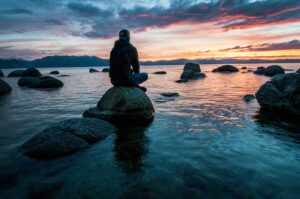You’ve heard people talk about “flow” or being “in the zone.” You’ve seen it in others when they’re “on” and have probably experienced it yourself. In my previous blog, I reviewed Daniel Pink’s book, Drive. Pink argues that “flow” occurs through intrinsic, not extrinsic, motivation. Said another way, peak performance is unlikely to be fostered through a “carrot and stick” approach. Instead, it occurs when someone is engaged in a task that challenges them, that connects to a bigger purpose, and that gives them autonomy. Pink explains, “The highest, most satisfying experiences in people’s lives were when they were in flow. … In flow, people lived so deeply in the moment, and felt so utterly in control, that their sense of time, place, and even self, melted away.” I can think of many occasions when I’ve experienced flow in my work and times when I’ve not. That caused me to wonder, “What causes ‘anti-flow’ in my life?” Here are my top four anti-flow factors, and the steps that I try to take to avoid them.
- Interruptions. For me, flow requires a high level of concentration and focus. So if I’m interrupted, it can take a lot of time for me to recover. When I’m working on something where flow is important, I try to find times and places where I won’t be interrupted and will turn off my phone and email.
- Too much to do. I always have a “to do” list, and it always has plenty on it. But there are times when “plenty” becomes “overwhelming” and I become paralyzed. If I’m thinking of all the other tasks that are waiting for me, I’ll never achieve flow. It usually helps to first knock out several of the smaller things on my list that don’t require flow.
- Interpersonal conflict. When important relationships are out of sorts, I can’t concentrate. I want to follow the instruction in Romans 12:18, “If it is possible, as much as it depends on you, live at peace with everyone.” So if I’m not at peace, I try to do the hard work of making things right rather than situation will resolve itself (which rarely happens).
- Wrong time of day. I’m a morning person. I have more energy and creativity before lunch. So I try to start the day early, do my most important work at the times when I’m at my best, and save the routine tasks for later in the day. When that’s not possible, I’m aware of the moments when my energy droops, and I take a break to recharge.



